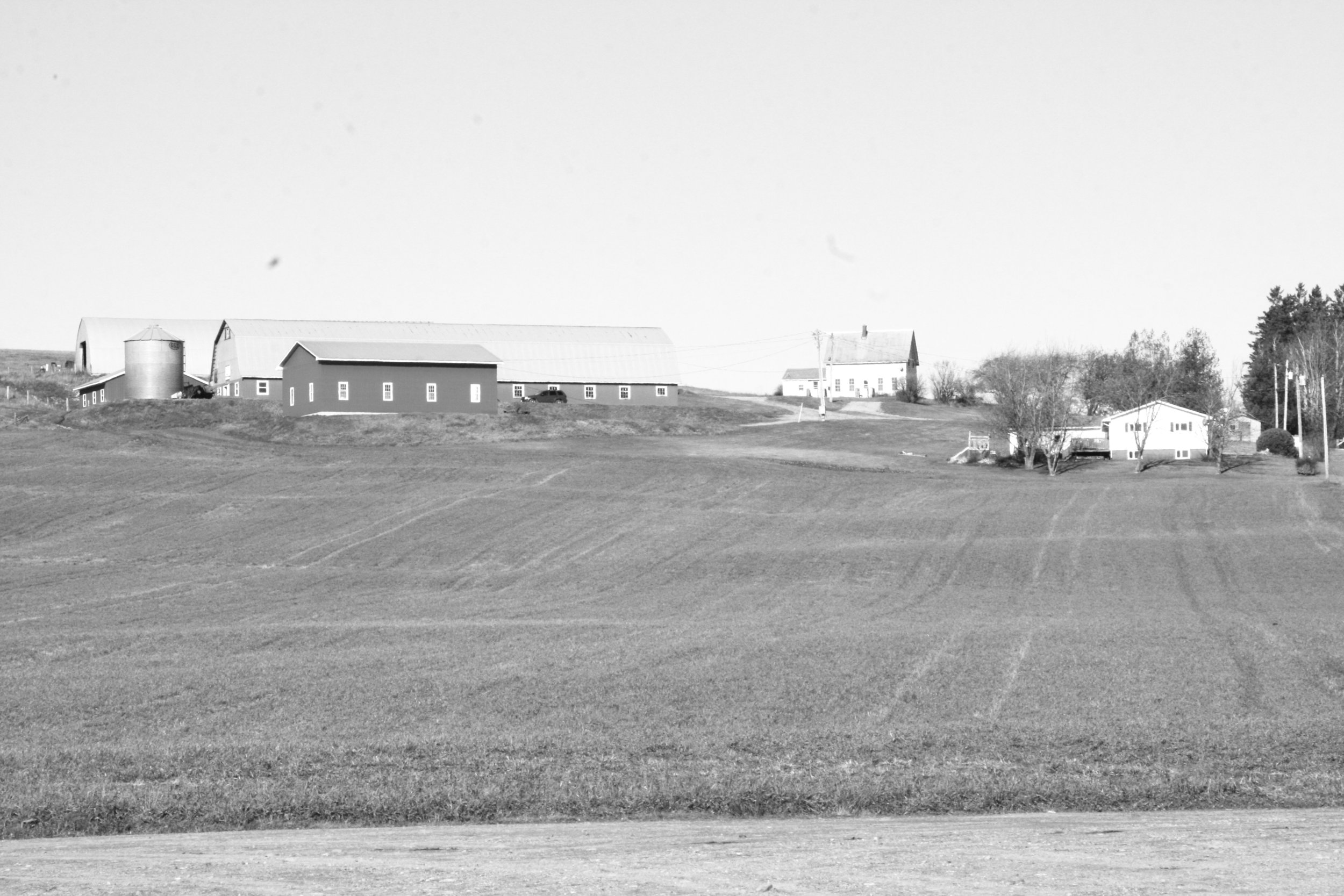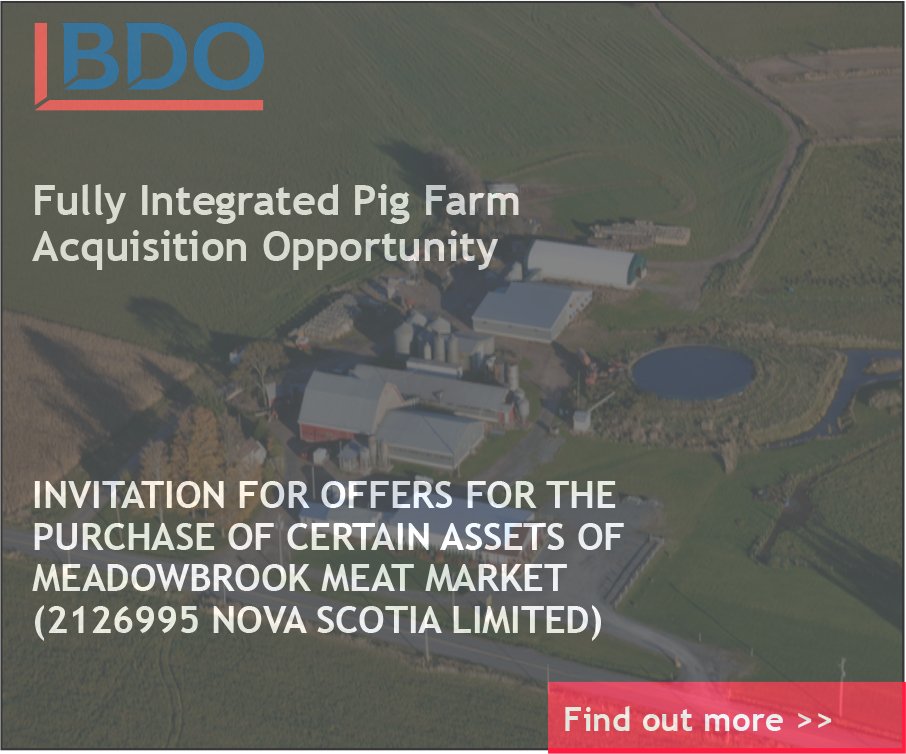Award-winning N.B. dairy farmers investing in the future
/by George Fullerton
Becky and Dwayne Perry’s dairy farm has been named the New Brunswick Soil and Crop Improvement Association’s Kings County farm of the year. The Perrys have a 110-head milking herd and are very active in the agriculture community.
Dwayne grew up on the family farm in Perry Settlement, near Sussex, working alongside his father Reg, who operated a 50-cow dairy operation. Reflecting on the family history, which dates back to the mid-1800s when the Perrys first settled there, Dwayne said with a chuckle, “If you have been here long enough, they name the place after you.”
Dwayne attended the Nova Scotia Agricultural College and returned to help operate the family farm. Becky said their dating relationship basically started off with Dwayne’s invitation, “If you come help me milk, we can get to the movie earlier.”
Becky grew up in Sussex and was very involved with her grandparents Garfield and Laura Morrow, who milked cows and raised heavy horses in the community. She participated in 4-H and has continued as a leader, counting a total of 20 years involved with 4-H.
Following high school, Becky attended the New Brunswick Community College, graduating with a business technology diploma with a major in accounting.
STRUCTURAL INVESTMENTS
Becky and Dwayne were married in 2006 and began farming together with Reg. In 2007, they designed and built a 136-stall free-stall barn and purchased the farm. In 2016, they built a house near the new barn, moving in with their children, 10-year-old Dylan, nine-year-old Paige, and seven-year-old Jack.
The barn has curtain sidewalls and is built on a pad which extends to provide a clean area to stack round bale silage. Manure is scraped by skid-steer and pumped to a concrete lagoon.
The barn design features a central forage feed bunk with bales loaded in by skid-steer. The Perrys have recently adapted TMR (total mixed ration) technology to shred and mix bales, and add some concentrated feed. Cows also feed at computerized concentrate feeders, which deliver feed according to their production and lactation.
The milking parlour is a double-eight herringbone. There are two calving pens and calves are moved to the old tie-stall dairy barn once they are weaned. Becky also controls a certain amount of real estate inside the heifer barn to house her pets, which include horses, sheep, and some poultry and rabbits.
Becky manages the herd (including AI breeding), the barns, and the finances. Dwayne manages equipment and crop production. Additionally, Dwayne does custom tillage work.
“He has a deep affection for new paint,” said Becky. “We have an understanding that if he is getting new paint, he is finding a way to pay for it. So he fits in custom tillage to have the new equipment.”
GROWING GOOD FORAGE
The Perrys operate on about 380 acres of tilled land, with about 75 acres in pasture.
“We are continually developing new land,” said Dwayne, adding that his father enjoys operating the excavator. “So he puts in some time clearing roots and rock.” He added that Reg usually milks a couple of times each week and operates equipment when forage harvesting and manure spreading gets busy. Reg also fits in some travel, since he considers himself retired.
Reg also gets to be a grandpa when babysitting is required. Dwayne and Becky contend that while he is great at watching the children, his dog training skills still need some work.
The farm operates with two full-time employees and one part-time milker, and an additional part-time employee from April through August.
Their crop rotation begins with two years in grain and then up to seven years in forage.
Dwayne orders a custom forage seed mix from the Sussex Co-op. Grass species include Tall fescue, Meadow fescue, Meadow brome, and late-maturing orchardgrass. Legumes include high-yield alfalfa, persistent alfalfa, White clover, Red clover, and Bird’s-foot trefoil. Branch root alfalfa is targeted to wet ground.
The nutrient regime consists of 46-0-0 urea in spring. Springtime is always busy and the fertilizer can be quickly applied with minimal compaction.
The first cut is at the end of May, followed up with a liquid manure application. Manure is applied again after the third cut around the end of August.
Wood ash is applied in the autumn to provide pH correction and to feed the forage plants roots. “It helps put legumes in good shape for winter,” said Dwayne, adding that there may be an additional manure application in the autumn if they want to lower the lagoon level before winter.
Soils in every field are tested every three years. Newly developed land is tilled, limed, and manured as it comes into production.
Forage mowing is with a 14-foot discbine, laid in a wide swath. The baler is a Lely with 26 knives. All bales are hauled to the barn pad for wrapping and are stacked three high. Forage samples are gathered and analyzed by their Shur-Gain mill, and the feed concentrates mixed accordingly.
The Perrys stick with round bale forages because they have a diverse, high-producing grass and legume mix, the required equipment line, and a comfort level with the production and harvest cycle.
“We do grass and legumes well, so we are keeping with that program,” said Becky. “If and when we see problems with that approach, we will analyze the issues and consider other options.”
Becky said she spends eight to 10 hours every week on paperwork and administration. She subscribes to the notion that if you don’t keep good records, you can’t manage effectively.
PLENTY OF PAPERWORK
One of the paper-heavy chores is the proAction milk production program administered by the Dairy Farmers of Canada. The program was launched in 2010 and became mandatory in 2012. Participants study modules that support quality assurance, have an on-farm audit conducted, and then make management improvements where required. The program is directed to continuous improvement in animal health and welfare, as well as environmental stewardship. The six modules are milk quality, food safety, animal care, traceability, biosecurity, and environment sustainability.
Becky’s other administrative tasks include keeping cattle records and environmental farm and nutrient management plans up to date.
For the past seven years, the Perrys have participated in Open Farm Day, hosting some 700 people at this year’s event.
Dwayne serves as a director with the Agricultural Alliance of New Brunswick, the Kings County Soil and Crop Improvement Association, and the Canadian Forage and Grassland Association. As a couple, Becky and Dwayne engage with their local milk committee and with fellow milk producers to promote their industry.












